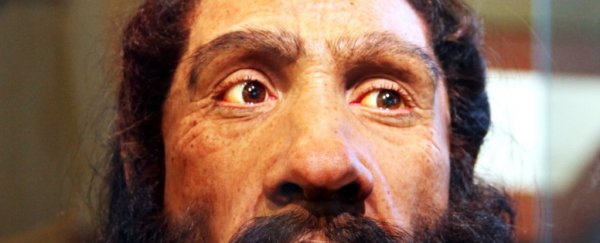Researchers have found evidence that modern genital warts – otherwise known as the human papillomavirus (HPV) – were sexually transmitted to Homo sapiens after our ancestors slept with Neanderthals and Denisovans roughly around 100,000 years ago.
This sexual exchange likely occurred soon after our human ancestors left Africa and spread to Eurasia, which explains why modern-day sub-Saharan Africa is mostly HPV-free, whereas genital warts are common in many other parts of the world.
Researchers from the National Centre for Scientific Research in France and Spain's Catalan Institute of Oncology were particularly interested in the carcinogenic strain of HPV, called HPV16. HPV16 is estimated to infect 4 percent of Americans, and is known to increase the risk of cervical cancer.
They ran 118 full sequences of HPV16 from five different subtypes of the virus to see how it evolved. They then used a computer algorithm to analyse the viruses' structures, and ended up with a genetic timeline, showcasing how the virus had changed over the years.
Based on this timeline, they found that HPV16 is roughly 500,000 years old, and likely arose within Neanderthal and Denisovan populations, which later spread the virus to early humans. The virus then evolved to form HPV16A - the technical name given to the modern strain of the virus.
"Our results suggest that ancestral HPV16 already infected the ancestor of H. sapiens and H. neanderthalensis half a million years ago, and that two main HPV16 lineages codiverged with either human lineage," writes the team.
The researchers suggest that early humans had their own strains of HPV, which can still be found in sub-Saharan Africa today, but HPV16 specifically arose in modern humans after our ancestors left Africa some 60,000 to 100,000 years ago, spread to Eurasia, and mated with the Neanderthals and Denisovans that were already there.
"The interbreeding events between Neanderthal and Denisovan populations with modern human ancestor populations lead to a host-switch through sexual transmission of the HPV16A virus lineage from archaic populations into the modern human ancestors," they explain.
Their hypothesis is backed up by the fact that populations in sub-Saharan Africa are generally HPV16-free, while much of the world is struggling to combat it.
"Oncogenic viruses [viruses that give rise to tumours] are very ancient," team member Ignacio Bravo, from the National Centre for Scientific Research, told Seth Augenstein at Laboratory Equipment.
"The history of humans is also the history of the viruses we carry and we inherit. Our work suggests that some aggressive oncogenic viruses were transmitted by sexual contact from archaic to modern humans."
The scenario is far from proven, but with further study, we'll hopefully unlock the secrets of the viruses that have plagued humanity for thousands of years, and in doing so, open up new ways to defeat them.
The team's work was published in Molecular Biology and Evolution.
